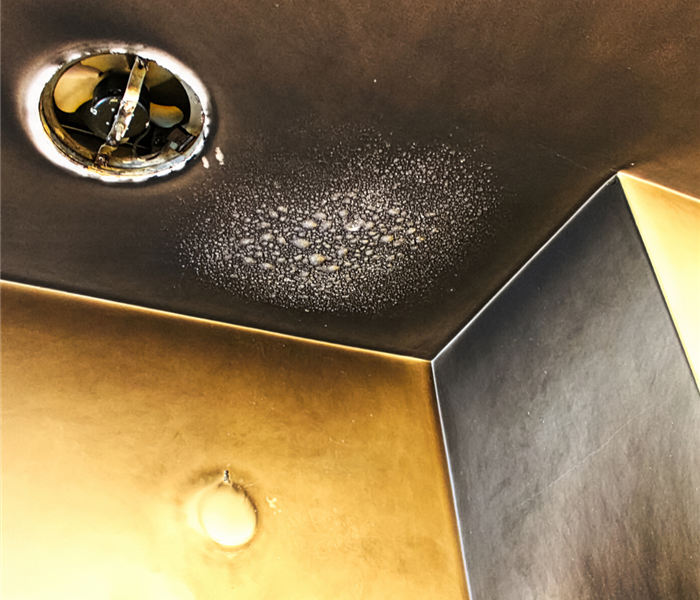SERVPRO of Effingham-Mattoon-Charleston can help you get back to normal after a kitchen fire.
2/11/2020 (Permalink)
 A local kitchen fire scorched this customers ceiling. They called SERVPRO of Effingham-Mattoon-Charleston to restore their home.
A local kitchen fire scorched this customers ceiling. They called SERVPRO of Effingham-Mattoon-Charleston to restore their home.
Cooking is something that most every person does on daily basis. It is an activity that is so normal, that it is easily forgotten how dangerous it can be. The temperatures required to cook are hot enough to start a fire if left unattended.
According to the NFPA, in 2018 the “United States fire departments responded to an estimated average of 172,100 home structure fires per year started by cooking activities in 2012-2016, or an average of 471 home cooking fires per day. These fires caused an average of 530 civilian deaths, 5,270 reported civilian fire injuries, and $1.1 billion in direct property damage per year.”
As you can see, fire damages not only happen often, they are expensive as well. This is because when a fire occurs it damages much more than just the structure of your home or business. The heat from the fire can change the chemical makeup of food items, textiles, furniture, and much more.
Another variable to consider is the amount of soot that the fire spreads around your home or business. Even a small fire in a small corner of your home or business can spread soot over the entire property. The soot gets into the duct systems and is then cycled through the property by the HVAC system. This is why you should trust our highly trained professionals come in and clean the property properly. At SERVPRO, we have a restore first mindset and will do our best to restore any items affected by fire.
What should be disposed of after a kitchen fire:
- Nonperishable food items- even though these food items are sealed, the heat from the fire can activate bacteria in the cans or jars causing the food to go bad.
- Room temperature perishable food items- a sealed refrigerator can keep food safe to eat for up to two hours without power as long as it is left shut. However if when the refrigerator is opened, even within that two hour zone, and a strange odor is present, it would be a good idea to dispose of the items inside.
- Burnt clothing- all clothing burned by the fire should be disposed of even if it is just barely burned.
- Cosmetics and medications- carefully sort through and examine cosmetics and medicine. If there are any signs that the container has been compromised, dispose the item.
A reliable rule of thumb after a kitchen fire is to get rid of items stored in cardboard, thin plastic bags, or cloth.
SERVPRO of Effingham-Mattoon-Charleston is a team you can count on to be Faster to Any Size Disaster. Call (217) 536-6655 today for a fast disaster cleanup service from an experienced team.






 24/7 Emergency Service
24/7 Emergency Service